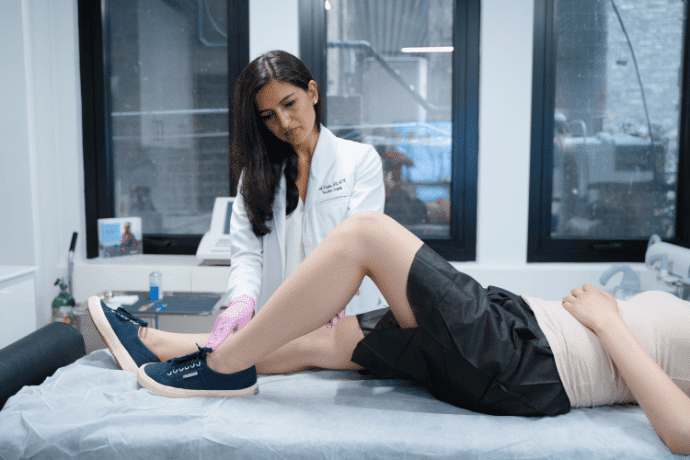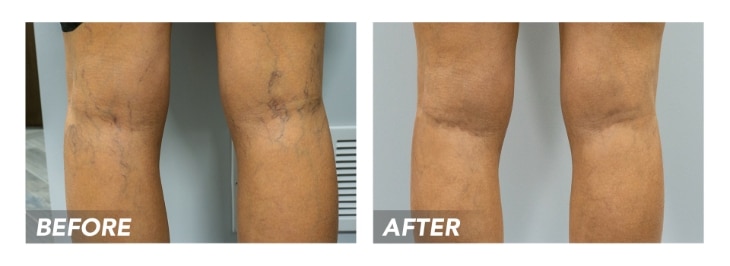Radiofrequency Ablation (RFA)
How does RFA work?
Your RFA treatment starts with a personalized consultation with the vein doctor. The vein doctor carefully examines your leg veins, discusses your symptoms, reviews your medical history, and curates a personalized treatment plan for you, which involves selecting the appropriate treatment plan. RFA is performed as an in-office and outpatient procedure under local anesthesia, and it concludes within an hour with no downtime.
During radiofrequency ablation, the vein doctor makes a small incision on the skin’s surface. The incision serves as an entry point for the catheter, which is driven under ultrasound guidance into the diseased vein. Once it’s lodged in place, the vein doctor generates radiofrequency waves to destroy the diseased vein, rerouting the accumulated blood into healthier leg veins.
Radiofrequency ablation is an extremely safe and effective treatment with a 98% success rate. It concludes within 30 to 60 minutes, following which you can resume your daily activities. Most insurance providers cover radiofrequency ablation, especially if you have vein disease.

RFA: pain and discomfort

RFA: aftercare and recovery
Radiofrequency ablation is a safe, in-office, outpatient procedure that concludes within 30 to 60 minutes without downtime. You may experience mild post-treatment side effects, such as redness, swelling, numbness, and discomfort around the treatment sites. However, these side effects aren’t significant enough to prevent you from working, and they dissipate within a few days. You must wear ACE bandage for 24 hours and compression stockings for 7 days, but there are no major activity limitations.
Radiofrequency ablation is the safest and most effective treatment for chronic venous insufficiency, the dangerous medical condition responsible for most vascular problems. If left untreated, vein disease continues progressing until you experience leg ulcers, skin discoloration, leg heaviness, varicose veins, frequent leg cramps, and deep vein thrombosis. That’s why you must consult a vein clinic in New Jersey to explore your minimally invasive vein treatment options, such as radiofrequency ablation.
Our state-of-the-art vein clinics in New Jersey are led by Harvard-trained, board-certified vein doctors specializing in the latest minimally invasive vein treatments. We always diagnose the root cause of your vein problems before curating a treatment plan, ensuring optimal and natural results. Schedule an appointment to explore your vein treatment options in New Jersey.
Not sure if you’re covered?
